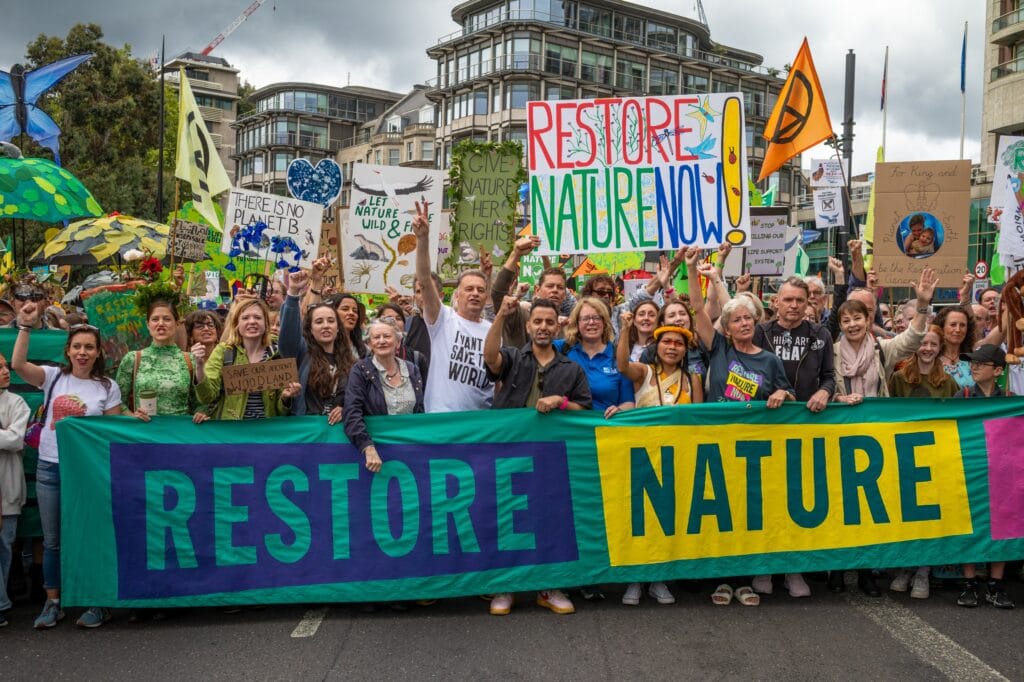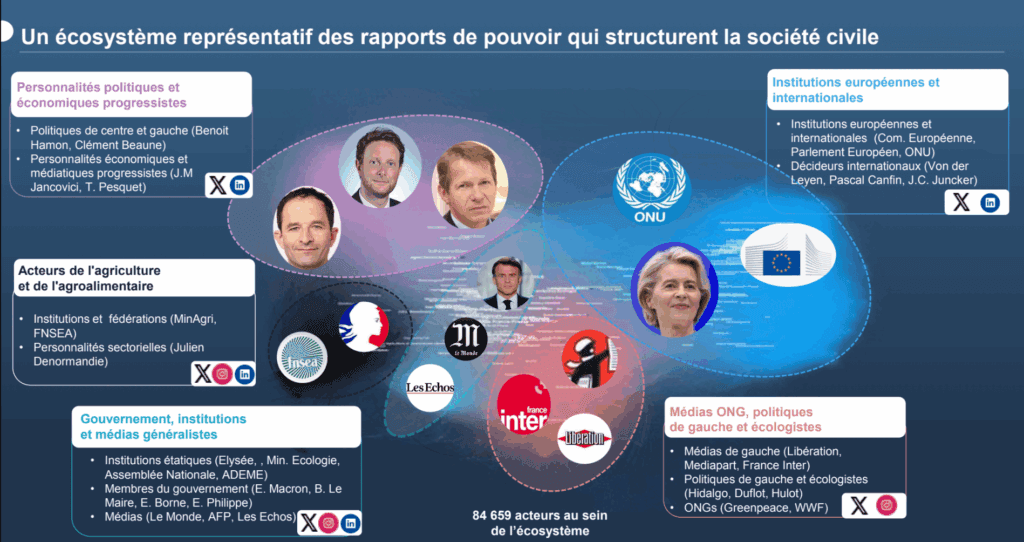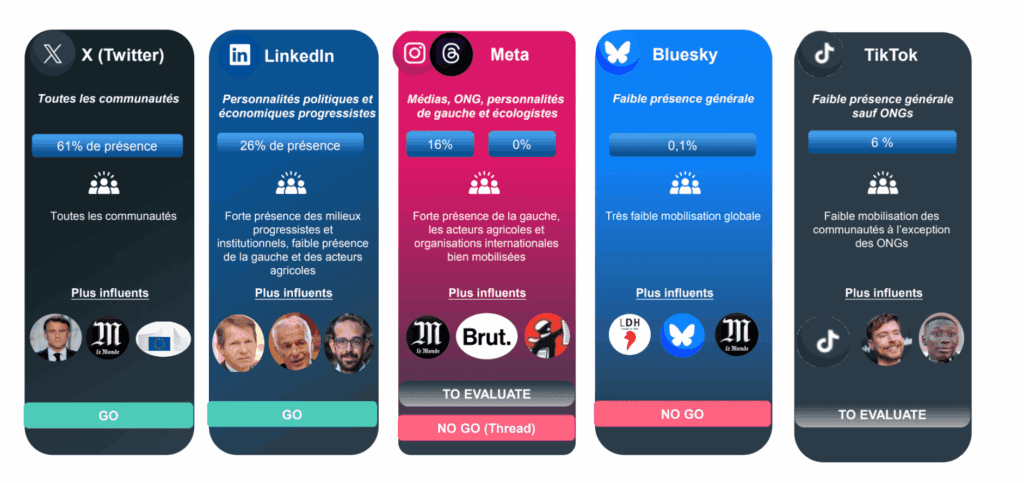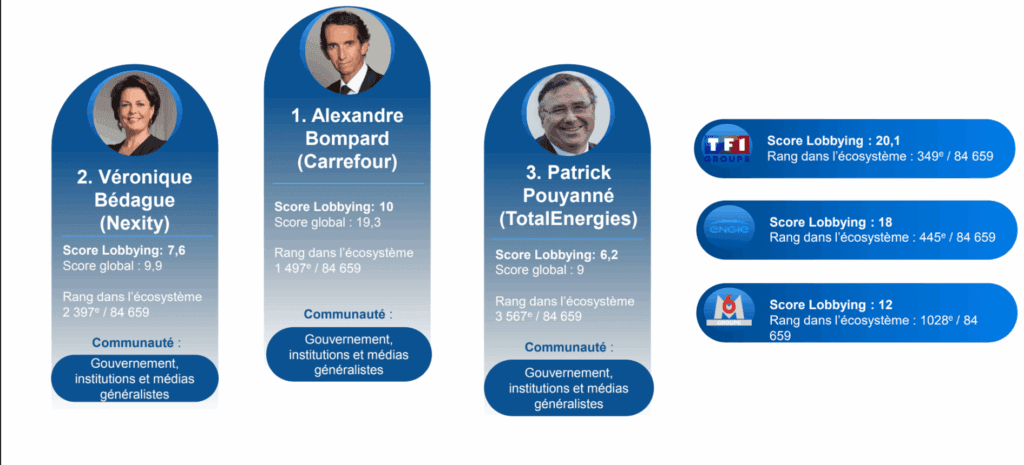Sommaire
Study of the lobbying sphere

Découvrez votre rang dans l'écosystème
After studying the first three spheres in previous research, our fourth study focuses on lobbying and civil society, with particular attention to the structuring of actors, their dynamics of influence, and their relationship with civil society.
1. Definition and scope of lobbying
The High Authority for Transparency in Public Life (HATVP) defines interest representatives as all organizations and individuals seeking to influence public decision-making. In our study, this includes:
- public affairs consulting firms, lawyers, and communication agencies,
- representative associations (trade unions, professional orders, federations),
- public actors (local authorities, national agencies such as ADEME or Santé Publique France),
- companies and professional federations,
- NGOs and civil society associations.
The analysis is based on a panel of 3,800 organizations monitored through our institutional monitoring platform Follaw.sv.
2. Structuring of the ecosystem
The mapping of interactions reveals several dominant communities:
- Power institutions (French, European, international), very active on X and LinkedIn.
- Government and national political leaders, occupying a central position in the ecosystem.
- Progressive political and economic figures, often challengers to the established system.
- Agriculture and agri-food, a historically mobilized and well-structured sector.
- Media community and left-wing/green NGOs, highly active and influential, particularly on social and environmental issues.
By contrast, some highly regulated sectors (transport, health, digital, defense, housing) appear poorly structured and heavily dependent on institutions.

3. Sectoral inequalities
The study highlights imbalances in sectoral structuring:
- Agriculture and FNSEA are genuine spearheads.
- MEDEF plays an important role, but its overly broad scope limits sectoral effectiveness.
- Think tanks remain discreet (only Institut Montaigne appears in the top 15).
- Health and housing show attempts at autonomy but remain absorbed by institutions.
This lack of coordination prevents many sectors from collectively weighing against political power.
4. Platforms and digital practices
Lobbying presence varies significantly across platforms:
- X (Twitter): an essential platform (61% presence).
- LinkedIn: central for economic and progressive spheres (26% presence).
- Meta/Facebook: strong mobilization from the left and agricultural sector.
- TikTok: an emerging space, dominated by NGOs.
- Threads and Bluesky: marginal and without significant impact.

Focus on TikTok
TikTok represents a new frontier for lobbying.
- NGOs stand out with effective strategies to raise public awareness, using formats adapted to the platform’s codes.
- Traditional actors (companies, institutions) still fail to mobilize on this channel due to a lack of cultural and strategic mastery.
This reveals a clear divide between:
- institutional lobbying, oriented toward public authorities,
- citizen lobbying, driven by NGOs, aiming to mobilize civil society directly.
5. Positioning of leaders and companies
Applying our Social Impact Score within the lobbying sphere reveals:
- SBF120 executives are very little followed: the best score only reaches 10/100 (ranking 1,497th).
- Companies achieve better results than their CEOs, often because these are media companies.
- Even committed figures (Emmanuel Faber, Alexandra Palt, Danone) fail to emerge.
Two notable exceptions:
- EDF, influential thanks to its strategic role in energy and nuclear.
- Dominique Schelcher (Système U), very well connected to the agricultural world.
Overall, leaders and companies struggle to find an audible channel of expression within the lobbying ecosystem.

6. Key takeaways
- TikTok: a new land to conquer: with opportunities in monitoring, calls to action, and messaging. The stakes with the general public are considerable.
- Lobbies with fragile coalitions: their interconnections do not reveal solid structuring. They are not currently organized to respond to short-term issues. By rushing from one topic to another without building long-term assets, they fail to develop as true activist networks.
- An exacerbated Parisian bias: never in our other studies have we observed such a Paris-centered ecosystem.
- Bluesky and Threads falling behind: these platforms are far from matching X in terms of connecting with civil society.
- The advantage of being a former minister: holding such a position remains an asset, both in terms of influence in the private sector and within NGOs.
- The absence of leaders: no executive has succeeded in capturing civil society audiences. But do they have the ambition, the need, and is it even possible? The conditions do not seem to be in place for now.
Conclusion
The French lobbying ecosystem appears both fragmented and unevenly structured.
NGOs stand out through their capacity for innovation and mobilization, particularly on TikTok, while companies and professional federations remain confined to traditional, institution-centered practices.
In this context, the organizations that will be able to:
- build strong coalitions,
- master new digital codes,
- integrate civil society into their strategies,
will be those that carry the most weight in shaping the political and social balance of power in the years to come.
